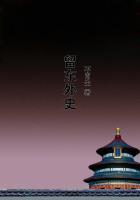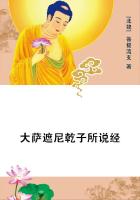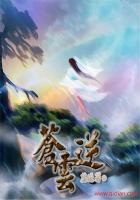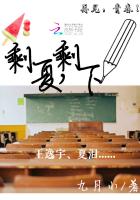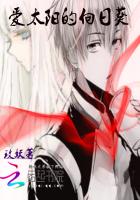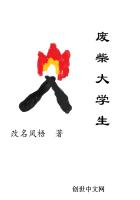FOUR generations had laughed over "Don Quixote" before it occurred to anyone to ask, who and what manner of man was this Miguel de Cervantes Saavedra whose name is on the title-page; and it was too late for a satisfactory answer to the question when it was proposed to add a life of the author to the London edition published at Lord Carteret's instance in 1738. All traces of the personality of Cervantes had by that time disappeared. Any floating traditions that may once have existed, transmitted from men who had known him, had long since died out, and of other record there was none; for the sixteenth and seventeenth centuries were incurious as to "the men of the time," a reproach against which the nineteenth has, at any rate, secured itself, if it has produced no Shakespeare or Cervantes. All that Mayans y Siscar, to whom the task was entrusted, or any of those who followed him, Rios, Pellicer, or Navarrete, could do was to eke out the few allusions Cervantes makes to himself in his various prefaces with such pieces of documentary evidence bearing upon his life as they could find.
This, however, has been done by the last-named biographer to such good purpose that he has superseded all predecessors. Thoroughness is the chief characteristic of Navarrete's work. Besides sifting, testing, and methodising with rare patience and judgment what had been previously brought to light, he left, as the saying is, no stone unturned under which anything to illustrate his subject might possibly be found. Navarrete has done all that industry and acumen could do, and it is no fault of his if he has not given us what we want. What Hallam says of Shakespeare may be applied to the almost parallel case of Cervantes: "It is not the register of his baptism, or the draft of his will, or the orthography of his name that we seek; no letter of his writing, no record of his conversation, no character of him drawn ... by a contemporary has been produced."
It is only natural, therefore, that the biographers of Cervantes, forced to make brick without straw, should have recourse largely to conjecture, and that conjecture should in some instances come by degrees to take the place of established fact. All that I propose to do here is to separate what is matter of fact from what is matter of conjecture, and leave it to the reader's judgment to decide whether the data justify the inference or not.
The men whose names by common consent stand in the front rank of Spanish literature, Cervantes, Lope de Vega, Quevedo, Calderon, Garcilaso de la Vega, the Mendozas, Gongora, were all men of ancient families, and, curiously, all, except the last, of families that traced their origin to the same mountain district in the North of Spain. The family of Cervantes is commonly said to have been of Galician origin, and unquestionably it was in possession of lands in Galicia at a very early date; but I think the balance of the evidence tends to show that the "solar," the original site of the family, was at Cervatos in the north-west corner of Old Castile, close to the junction of Castile, Leon, and the Asturias. As it happens, there is a complete history of the Cervantes family from the tenth century down to the seventeenth extant under the title of "Illustrious Ancestry, Glorious Deeds, and Noble Posterity of the Famous Nuno Alfonso, Alcaide of Toledo," written in 1648 by the industrious genealogist Rodrigo Mendez Silva, who availed himself of a manuscript genealogy by Juan de Mena, the poet laureate and historiographer of John II.
The origin of the name Cervantes is curious. Nuno Alfonso was almost as distinguished in the struggle against the Moors in the reign of Alfonso VII as the Cid had been half a century before in that of Alfonso VI, and was rewarded by divers grants of land in the neighbourhood of Toledo. On one of his acquisitions, about two leagues from the city, he built himself a castle which he called Cervatos, because "he was lord of the solar of Cervatos in the Montana," as the mountain region extending from the Basque Provinces to Leon was always called. At his death in battle in 1143, the castle passed by his will to his son Alfonso Munio, who, as territorial or local surnames were then coming into vogue in place of the ****** patronymic, took the additional name of Cervatos. His eldest son Pedro succeeded him in the possession of the castle, and followed his example in adopting the name, an assumption at which the younger son, Gonzalo, seems to have taken umbrage.



